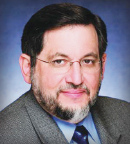
Andrew E. Aplin, PhD
Andrew E. Aplin, PhD, has been appointed Deputy Director for Scientific Strategy of the Sidney Kimmel Cancer Center (SKCC)–Jefferson Health. Dr. Aplin, who is Associate Director for Basic Research at SKCC and the Kalbach-Newton Professor in Cancer Research, assumed the role on June 1, 2021.
As Deputy Director for Scientific Strategy, Dr. Aplin will help guide strategic research priorities to ensure the delivery of advanced, personalized care through scientific discoveries and breakthroughs in cancer detection and treatment. One of his primary roles will be to foster collaborations among basic, translational, clinical, and population science researchers across the Jefferson enterprise and to promote interdisciplinary research. He will also help lead SKCC’s next National Cancer Institute (NCI) designation renewal. Dr. Aplin will work alongside Neal Flomenberg, MD, SKCC’s Deputy Director for Clinical Integration and Chair of the Department of Medical Oncology.
Changing the Tumor Microenvironment
Dr. Aplin’s research focuses on how melanomas adapt and develop resistance to targeted therapies. He is a principal investigator of several research projects funded by the National Institutes of Health/NCI, U.S. Department of Defense, Melanoma Research Alliance, and the Adelson Medical Research Foundation. He is a project leader in a funded NCI P01, which links SKCC–Jefferson Health with the Sidney Kimmel Comprehensive Cancer Center at Johns Hopkins. Dr. Aplin’s lab is studying ways to alter the tumor microenvironment by inducing inflammatory forms of cell death in order to turn “cold” tumors into “hot” tumors, which better respond to immune checkpoint inhibitors. Additionally, Dr. Aplin established several multi-institutional teams that study dormancy, epigenetics, and resistance to targeted inhibitors in uveal melanoma.

Neal Flomenberg, MD
Dr. Aplin first joined Jefferson in 2008 as Associate Professor of Cancer Biology. He was appointed SKCC’s Associate Director for Basic Research in 2015 and was previously leader of the Cancer Cell Biology and Signaling Research Program. He also holds secondary appointments in the Department of Ophthalmology at Wills Eye Institute and the Department of Dermatology and Cutaneous Biology at Thomas Jefferson University.

